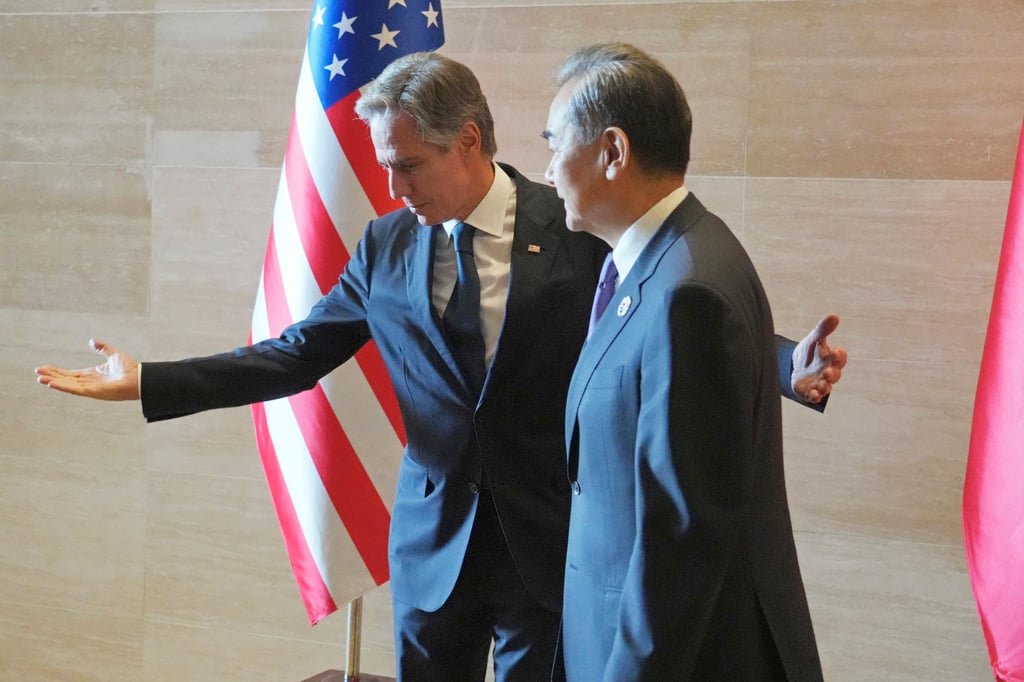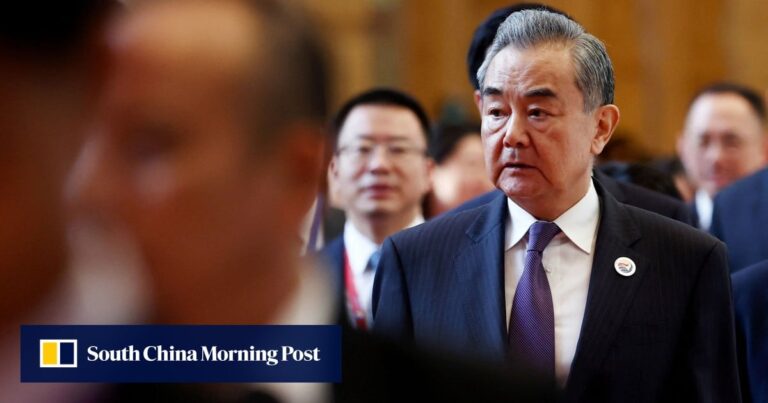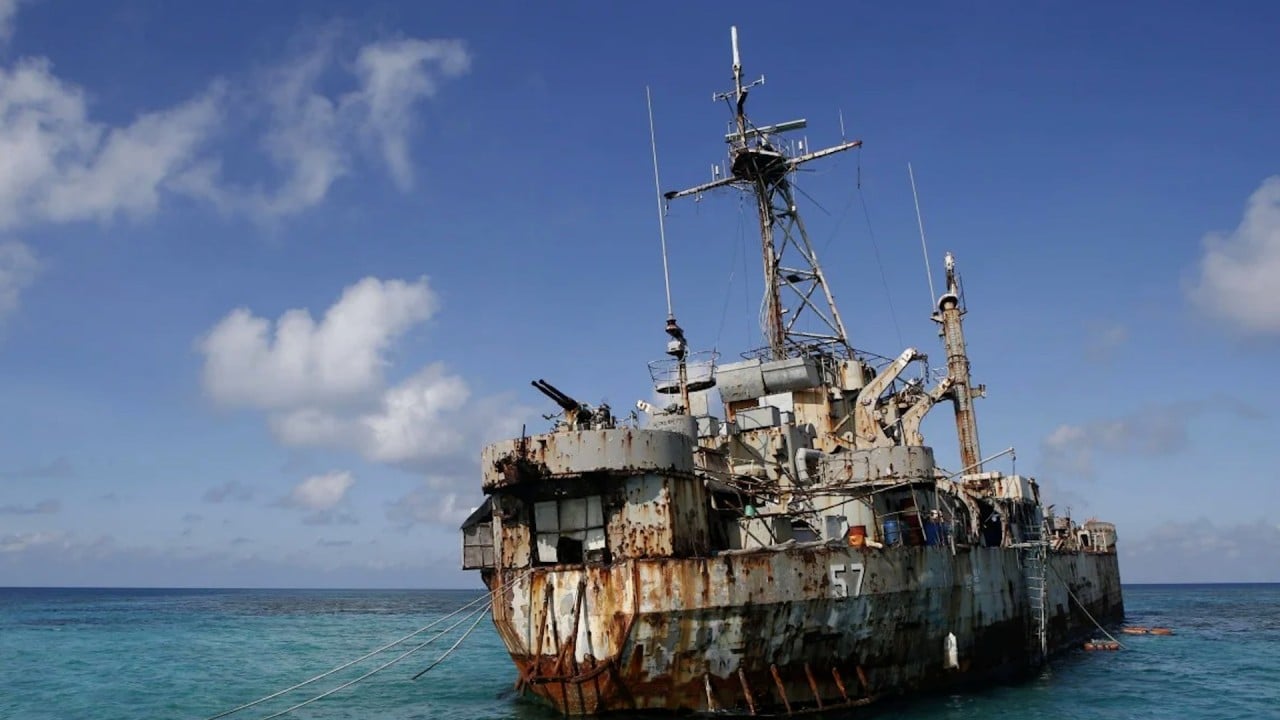The 10-member ASEAN nations expressed “concern” in a joint statement at the end of a three-day meeting on Saturday amid an escalating standoff between the United States and China over regional hegemony.
Observers said the statement highlighted deep divisions within the group.
Maria Temar Tana, an adjunct fellow at the Stratbase ADR Institute in Manila, said China’s assertive behavior has strained ties with other Southeast Asian countries and the two remain deeply divided over how to deal with an increasingly confident China.
“Some countries are wary of direct confrontation with China, but also wary of becoming too dependent on China. This forces them to carefully balance their economic ties with China while preventing Chinese dominance,” she said.
Wang on Saturday singled out Washington and U.S.-led NATO as the biggest threat to peace and stability in the Indo-Pacific region, and urged ASEAN to “remain vigilant. [Nato] The state-run Xinhua News Agency reported that “China will press ahead with its intervention in the region.”
“The US-led ‘Indo-Pacific Strategy’ exacerbates security dilemmas and runs counter to our vision for long-term peace and prosperity in the region,” Wang said at a meeting of the ASEAN Regional Forum attended by 27 foreign ministers, including US Secretary of State Antony Blinken.
NATO intervention in the region “will provoke conflict and increase tensions,” Wang was quoted as saying.
Meanwhile, Blinken slammed China’s “escalating unlawful actions” in the South China Sea.

The foreign ministers gathered in the Laotian capital, Vientiane, for a three-day ASEAN and related conference, which was attended by foreign ministers from Russia, Japan, India, Australia, South Korea, the European Union and North Korea.
In a world of “turmoil and chaos,” “ASEAN’s status of peace, freedom and neutrality should be respected,” Wang said at the regional forum. “An ASEAN-centered, open and inclusive regional architecture should be established. [should] They will be supported,” he added.
Beijing insisted on “managing differences” [over the South China Sea] “This should be appropriately addressed through dialogue and consultation with all parties involved,” he said, and urged regional countries to reject “external interference, confrontation and pressure.”
Wang also denounced rumors that Manila was seeking a second international arbitration trial over Beijing’s sweeping claims to the disputed waters, following a landmark victory in the first international arbitration case eight years ago.
China claims almost the entire South China Sea under the historic “nine-dash line” – a claim disputed by neighbours including the Philippines, Vietnam, Malaysia and Brunei.
An international tribunal in 2016 ruled in favour of the Philippines, but Beijing refused to join the case and rejected the ruling.
Wang said the 2016 arbitration trial was “seriously flawed in law and fact and politically motivated.”
“Under no circumstances will this unlawful ruling affect China’s territorial sovereignty and maritime rights and interests in the South China Sea,” he stressed.
Wang also slammed growing U.S.-Philippine security ties under President Ferdinand Marcos Jr., including the deployment of the U.S. Typhon missile system.
In a series of bilateral meetings with regional foreign ministers, including South Korean Foreign Minister Cho Tae-yeol, Wang also stressed the importance of avoiding interference from outside factors, with an implicit reference to the United States.
But Cho countered that the rules-based order and freedom of navigation in the South China Sea, as well as peace and stability in the Taiwan Strait, are crucial to South Korea’s national security.
Indonesian Foreign Minister Retno Marsudi also warned of a “worrying trend of big powers dominating smaller ones that reflects hegemonic tendencies that should be a thing of the past,” but did not name China or the United States.
“We are witnessing intensifying conflicts, growing distrust and the potential for dangerous miscalculation,” he said at the East Asia Summit, according to a ministry statement.
Carl Thayer, professor emeritus of politics at the University of New South Wales in Australia, also warned that the world order was increasingly polarised into two opposing camps, with Russia and China’s close cooperation putting them at odds with the US and its allies.
“In other words, tensions in the South China Sea will be seen as systemic rather than regional. This will lead to greater cooperation between the United States and its allies Japan, Australia and South Korea, and a stronger European naval presence in the South China Sea than ever before,” he said.
“ASEAN’s much-vaunted central role in regional affairs will be undermined by internal divisions.”
The Philippines tried to include a June 17 clash with China near the disputed Second Thomas Shoal, the second such clash in months, in an ASEAN joint statement but was blocked by Cambodia and Laos, according to the Associated Press.
Singapore’s Foreign Minister Vivian Balakrishnan, who met with Wang, expressed concern about rising tensions between Beijing and Manila and the worsening conflict between the United States and China, saying “the fundamental problem is a lack of trust between the two superpowers.”
He acknowledged in a group interview on Saturday that ASEAN unity faces big challenges. Unlike Europe and the Middle East, he said, Southeast Asia should be an “oasis of peace” with no “lines that divide us” or “forces us to choose sides.”


